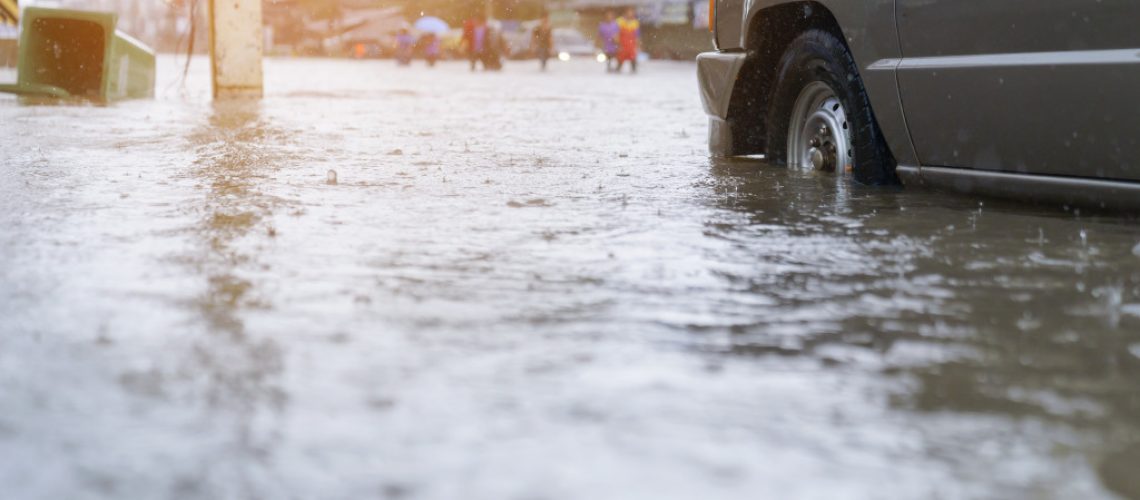Even if a storm didn’t leave major damage in its wake, recovering from it is still challenging. Storms and other natural disasters disrupt daily life. It causes an economic downturn, hurting businesses, especially small, local ones.
Losing sales isn’t the only consequence. Businesses can recover those in no time anyway, especially if they deal with necessities like food, drink, and medicine. A worse consequence would be security risks. They double up after a natural disaster when a state of unrest could occur.
Even big corporations aren’t invincible to the security risks that emerge after a natural disaster. But small businesses are the most vulnerable. That said, here are the top business security risks natural disasters create:
1. Property Damage
A business can be at risk of property damage if its facility is prone to flooding or near a fault line. If the area is close to forests or agricultural lands, a bushfire may reach it fast. Tornadoes and hurricanes are significant threats as well. Strong winds can break glass, strip off roofs, and topple down trees and power lines nearby.
Thankfully, business insurance covers property damage from natural disasters. But of course, businesses should also take measures to reinforce the structural integrity of their facility. It is important to do so because a natural disaster could occur in the middle of working hours. Business owners are responsible for the safety of their employees, so they must not let them work in a place that could injure or kill them.
As soon as a natural disaster has been predicted, businesses should put away the objects that could cause injury. If they anticipate a flood, protecting the area with sandbags may work, but they should also check the drainage system. There might be blockages inside, which, when removed, will allow water to flow uninterrupted, reducing the chances of a flood.
If the business’s location is included in a natural disaster declaration, owners can register and apply for assistance with the Federal Emergency Management Agency (FEMA). They should also call their insurer and file a claim as soon as possible. It will be easier to deal with aid and coverage before the damage is done.
2. Looting
Since natural disasters cause panic and unrest, some civilians resort to looting to survive. It doesn’t excuse the act, but it shouldn’t cause a surprise, either. However, some looters commit the crime simply because they feel entitled to the things they steal. These are the types of looters businesses should watch out for the most.
Luckily, most business insurance policies cover income loss due to riots and civil unrest, including looting. But each claim is different and subject to evaluation. A business owner must document the damage and present it as evidence to their insurer.
3. Data Loss

Business establishments that a natural disaster has damaged can lose important data. Without a backup, they cannot recover what is lost.
With today’s technology, losing data forever is next to impossible. But it doesn’t mean all businesses are now using the best types of backups. If they’re still using USB drives or external hard drives, they still face data loss risks because those devices aren’t immune to damage or theft.
A cloud-based backup will work better. It stores data online, so business owners and employees can access it from any device with an internet connection. They should keep digital versions of all their critical files in the cloud, such as receipts, tax-related documents, registries, and more.
4. Casualties
Employees are the backbone of a business. Hence, they’re the most important resource. If a business loses its employees to a natural disaster, it will take a long period to recover.
And of course, the business owners themselves can also suffer injuries or death from a natural disaster. If they become unable to lead or run the business, security risks and other unfortunate events will follow.
The risks of casualties are out of anyone’s control during a natural disaster, but people can mitigate them. Companies should decide on the way to stay in touch with one another. If the internet likely loses connection, companies should turn to SMS messaging. And before the disaster strikes, they should find out what their employees might need, like a day off work to prepare their homes or evacuate, for instance.
Workplaces should also rent or buy equipment to maintain security or aid in disaster relief. Heavy-duty post-construction light towers will help. They run on generators, so they’ll remain useful even if the power is out. Lighting equipment will go a long way in preventing more or reducing casualties.
After a natural disaster, businesses should be more concerned about the welfare of their community instead of their profit. Their finances will bounce back in time, and damaged properties can be rebuilt. But lost lives cannot be taken back.

